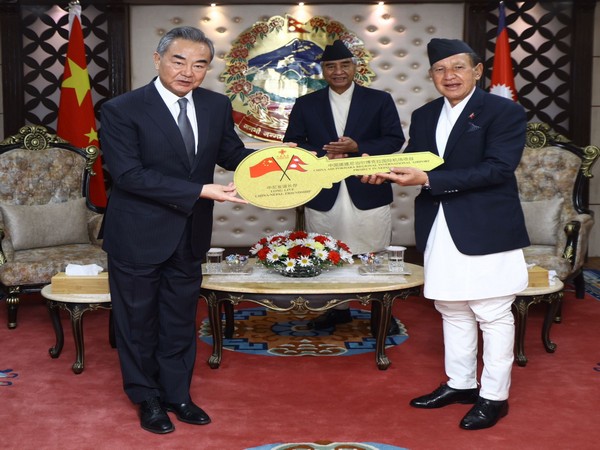No agreement on BRI as Nepal toughens stand amid Chinese FM visit
Amid the ongoing visit of Chinese Foreign Minister Wang Yi to Nepal, the two countries failed to sign an agreement on Belt and Road Initiative (BRI) projects and the accompanying loans, with the Himalayan country asserting that it will not accept any project that comes with strings attached.

- Country:
- Nepal
Amid the ongoing visit of Chinese Foreign Minister Wang Yi to Nepal, the two countries failed to sign an agreement on Belt and Road Initiative (BRI) projects and the accompanying loans, with the Himalayan country asserting that it will not accept any project that comes with strings attached. A total of nine agreements were signed between Nepal and China after the delegation-level talks between Nepali Foreign Minister Narayan Khadka and his counterpart Wang Yi on Saturday in wide-ranging areas including economic and technical cooperation, protocols on bilateral trade and people exchanges, and on the ongoing Chinese projects in Nepal. However, none of the agreements related to the BRI.
"While stressing the country's economic priority, the prime minister during his meeting with the Chinese foreign minister and state councillor said that a loan is not what Nepal prefers at this point and sought more projects from China under a grant assistance," Govinda Pariyar, the prime minister's publicity affairs chief was quoted by Kathmandu Post. Nepal signed up to the BRI Framework Agreement in May 2017 but not a single project has taken off due to several constraints including finalisation of the text of the project implementation agreement as well as strong protests from locals alleging land grabbing by the Chinese investors and inadequate compensation.
Nepal had put forward its reservations on the BRI projects even before the Chinese FM's arrival. Kathmandu had made it clear that there should be a joint mechanism for selecting the projects, preference should be given to grants but if a loan is required then the loan interest should not go beyond two per cent and that repayment time for the loan should be decided based on a mutually agreed timeline.
"Soft loans for the projects financed under the BRI must not have an interest rate of more than 2 per cent. Similarly, the repayment time should be as per the international standard or as per the interest rate imposed by the World Bank, the Asian Development Bank and others," a senior Finance Ministry official in Nepal was quoted by the Kathmandu Post. Nepal had also set a condition that there should be competitive bidding in BRI projects and they should be open to all, not just Chinese firms.
Beijing has been trying to push some projects under the BRI in Nepal, especially in the wake of Nepal's ratification of the Millennium Challenge Corporation (MCC), a $500 million American grant for building electricity transmission lines and improving roads. The Chinese had expressed their disappointment at the deal and had even called the MCC to grant a "pandora's box".
"The Chinese foreign minister did not raise the issue of MCC during the meetings with the prime minister and me," Foreign Minister Khadka told reporters after the meeting between Deuba and Wang. "But since concerns had been raised (by China) in the past, I clarified that any development assistance coming from outside (to Nepal) is purely for developmental objectives." The visit of Chinese FM Wang Yi to Nepal comes at a time when relations between the two countries are experiencing a downturn, due to growing suspicion about the Chinese investments in the country.
Wang's Nepal visit will also culminate the slew of trips that the Chinese Foreign Minister has made to the South Asian countries since he arrived in Pakistan on March 21 to attend the Organization of Islamic Countries (OIC) summit as a "special guest". Wang held talks with Taliban representatives in Afghanistan on Thursday, followed by his arrival in New Delhi the same evening, where he held talks with External Affairs Minister S Jaishankar and National Security Advisor Ajit Doval on Friday before departing for Kathmandu on a three-day visit that concludes today. (ANI)
(This story has not been edited by Devdiscourse staff and is auto-generated from a syndicated feed.)










